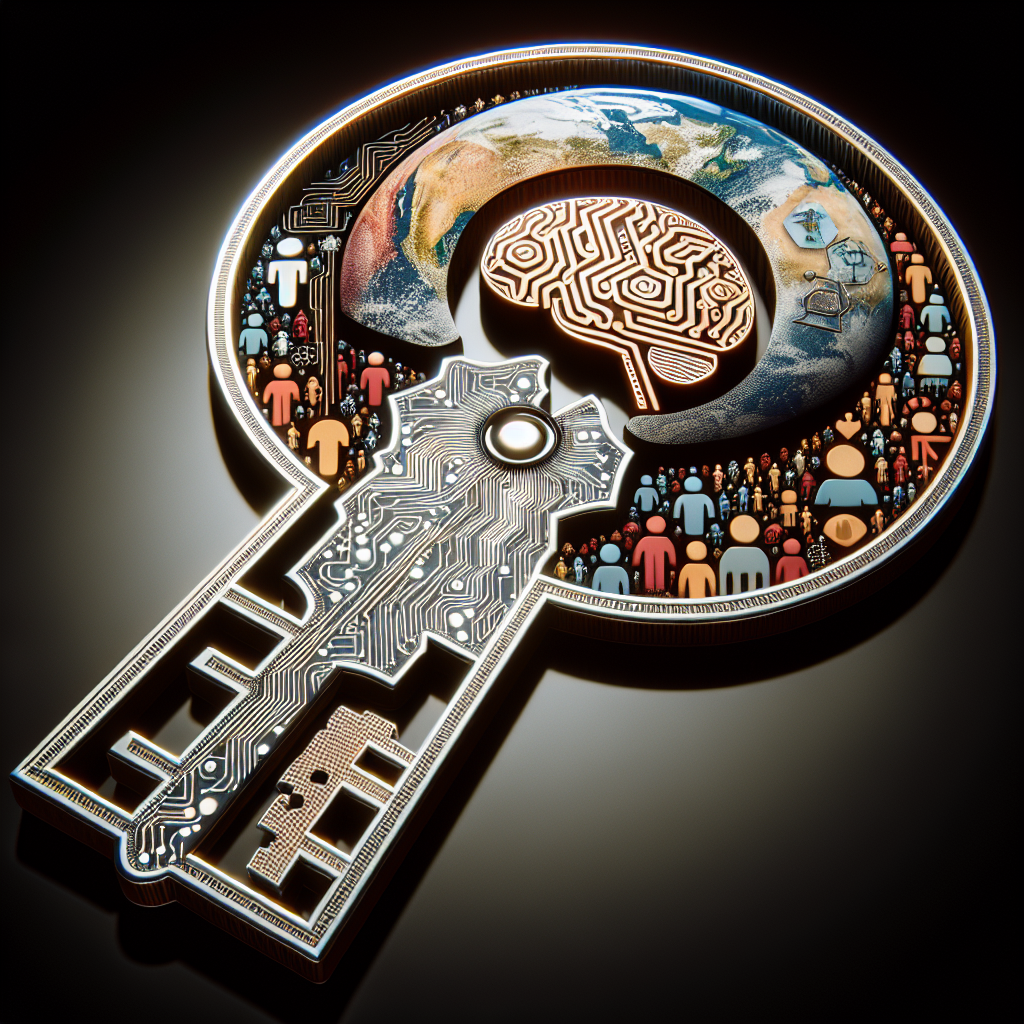Artificial General Intelligence (AGI) is the next frontier in the field of artificial intelligence. While current AI systems are designed to perform specific tasks or functions, AGI aims to create machines that can think and learn like humans, with the ability to understand and adapt to a wide range of tasks and situations. This level of intelligence has the potential to revolutionize industries, solve complex problems, and ultimately improve the lives of people around the world.
AGI has the potential to address some of humanity’s biggest challenges, from healthcare and climate change to global poverty and education. By harnessing the power of intelligent machines, we can unlock new possibilities and drive progress in areas where human limitations have prevented significant advancements.
One of the key benefits of AGI is its ability to process and analyze vast amounts of data at speeds far beyond human capabilities. This can lead to breakthroughs in medical research, as AI systems can identify patterns and trends in patient data to help diagnose diseases and develop personalized treatment plans. In the fight against climate change, AGI can be used to optimize energy consumption, predict weather patterns, and develop sustainable solutions for reducing carbon emissions.
AGI also has the potential to empower individuals and communities by providing access to education and resources that were previously out of reach. By creating intelligent tutoring systems, AGI can personalize learning experiences and help students of all ages and backgrounds succeed academically. In developing countries, AGI can be used to improve access to healthcare, clean water, and other essential services, leading to a more equitable and sustainable future for all.
In addition to its practical applications, AGI can also stimulate economic growth and innovation by creating new industries and job opportunities. As intelligent machines become more integrated into our daily lives, there will be a growing demand for skilled workers to design, build, and maintain these systems. This in turn can drive advancements in technology, science, and engineering, leading to new discoveries and solutions to complex problems.
Despite the potential benefits of AGI, there are also concerns about its impact on society and the economy. Some experts worry about the ethical implications of creating machines with human-like intelligence, including issues related to privacy, security, and autonomy. There are also concerns about the potential for job displacement, as AI systems become more capable of performing tasks traditionally done by humans.
To address these concerns, it is important for researchers, policymakers, and industry leaders to work together to develop guidelines and regulations for the responsible development and deployment of AGI. This includes ensuring transparency and accountability in AI systems, as well as promoting diversity and inclusivity in the design and implementation of these technologies.
In conclusion, AGI has the potential to transform the way we live, work, and interact with the world around us. By harnessing the power of intelligent machines, we can overcome some of humanity’s biggest challenges and create a more sustainable and prosperous future for all. It is essential that we approach the development of AGI with caution and foresight, ensuring that these technologies are used for the benefit of society as a whole.
FAQs:
Q: What is the difference between AGI and narrow AI?
A: Narrow AI refers to AI systems that are designed to perform specific tasks or functions, such as speech recognition or image classification. AGI, on the other hand, aims to create machines that can think and learn like humans, with the ability to understand and adapt to a wide range of tasks and situations.
Q: How close are we to achieving AGI?
A: While significant progress has been made in the field of AI, true AGI remains a distant goal. Researchers continue to work on developing algorithms and technologies that can mimic human intelligence, but there are still many challenges to overcome before AGI becomes a reality.
Q: What are some potential risks of AGI?
A: Some experts warn that the development of AGI could pose risks to society, including issues related to privacy, security, and job displacement. There are also concerns about the ethical implications of creating machines with human-like intelligence, such as the potential for AI systems to make biased or unethical decisions.
Q: How can we ensure that AGI is used responsibly?
A: It is essential for researchers, policymakers, and industry leaders to work together to develop guidelines and regulations for the responsible development and deployment of AGI. This includes ensuring transparency and accountability in AI systems, as well as promoting diversity and inclusivity in the design and implementation of these technologies.

